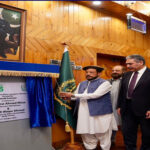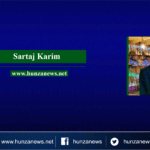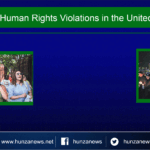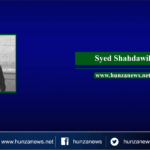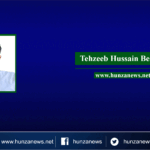Pro-Russian rebels in east Ukraine are turning to Soviet World War II posters to spread their message of fighting against Ukrainian “fascists” in a part of the world that was flattened by Nazi troops.
“The Motherland Calls!” read one billboard accompanied by a vintage print of a stern-looking Soviet woman against a background of bayonets — jarring next to garish adverts for phone operators, vacuum cleaners and bikinis.
Dozens of posters have sprung up on the main roads in and around Donetsk, a rebel-held industrial city and commercial hub for eastern Ukraine.
“We have put up about 100 of them,” said Yelena Nikitina, the minister of information of the self-declared Donetsk People’s Republic government.
“We Will Win!” read another poster featuring a picture of a mediaeval Russian knight, the Russian general Alexander Suvorov who fought against Napoleon and a Bolshevik fighter from the 1917-1922 Russian Civil War.
Some of the images have been adapted to fit with modern-day circumstances.
One shows a mother and child cowering as a bloody bayonet is thrust towards them and the slogan reads: “Russian Army, Save Us” — a small but significant alteration from the original Soviet version: “Red Army, Save Us”.
Another depicts a Soviet Red Guard fighter in the Civil War with the date 1918, followed by an image of a Red Army soldier with the date 1941, then a modern-day rebel fighter with a surface-to-air missile and the date — 2014.
“They reflect people’s inner convictions. We almost didn’t have to change them,” Nikitina told AFP in an interview in the rebel-held regional administration building where a sign outside reads: “No to Fascism”.
“The terrible thing about this situation is that after 70 years we still haven’t learnt the lesson. The same slogans still apply now! It’s terrible. We have allowed Nazism to appear,” Nikitina said.
– ‘Russians made of steel’ –
Pro-Moscow rebels often portray their insurgency as a war against far-right nationalists in eastern Ukraine — a view reinforced by fighting in civilian areas in and around Donetsk and Lugansk, another rebel-held city.
The main aim of the campaign is to encourage volunteers to join rebel ranks.
One World War II image shows a mother and child behind barbed wire and the inscription says: “Everyone defend our native land: We will not allow Nazi concentration camps in the Donbass” — a reference to the Donetsk region.
Nikitina said there had been a “positive” response to the poster campaign but not everyone in Donetsk appeared convinced about their effectiveness.
“The effect of these World War II designs are exactly the same as they would be for any other posters. People would still join the rebellion. The posters don’t matter,” said Oleg, a 41-year-old walking past one of the billboards.
Other Soviet-like posters have also cropped up with entirely new images and slogans about the current struggle including one about the rebel authority reading: “A Republic of the People’s Economy Without Oligarchs or Corruption”.
Another looks like the poster for the film “300” about the resistance of 300 Spartans in the ancient Greek Battle of Thermopylae against the Persian Empire.
But the image is of Igor Strelkov, a pseudonym used by the rebel authority’s defence minister, a Russian citizen whose real name is Igor Girkin.
The caption reads: “Russians Made of Steel”.




